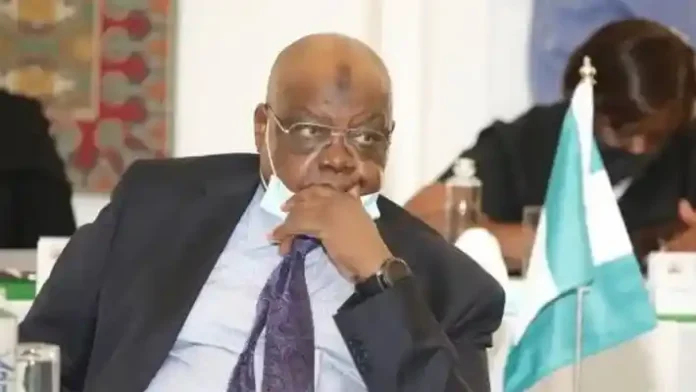Retiring Justice Muhammad Dattijo statement emerges amid heightened Nigerian disapproval of the Supreme Court’s ruling to let President Bola Tinubu stay in office, despite allegations of presenting a forged school certificate to INEC.
Abuja, Nigeria – Retiring Justice Muhammad Dattijo of the Supreme Court of Nigeria delivered a blistering critique of the state of the nation’s highest judicial body, describing it as tainted by bribery and a distortion of justice. His comments come amidst growing public dissatisfaction with the Supreme Court’s decision to allow President Bola Tinubu to remain in office despite allegations of presenting a forged school certificate.

Justice Dattijo, who turned 70 on October 27, voiced his concerns during a farewell ceremony held in his honor in Abuja on Friday. He lamented the decline of the court’s reputation, asserting that many of his colleagues lacked a clear understanding of delivering justice to the Nigerian people.
He noted that “public perceptions of the judiciary have over the years become witheringly scornful and monstrously critical.” Dattijo further added, “It has been in the public space that court officials and judges are easily bribed by litigants to obviate delays and or obtain favorable judgments.”
Justice Dattijo highlighted that he was not the only justice with a dismal view of the judiciary, referencing former Justice of the Court of Appeal, Oludotun Adefope-Okojie, who retired in May 2023 at 70. Mrs. Adefope-Okojie, during her retirement, also lamented the failure of top-level Nigerian judiciary to address issues of corruption, even as public anger intensifies.
Dattijo pointed out, “Pleas are expressed every day by the generality of the public begging the judiciary to be just, to be truthful, and to save the country from collapse.”
Recalling Mrs. Adefope-Okojie’s remarks, Dattijo emphasized the severe vilification of the Apex Court, which has been referred to as a “voter gaggle of useless, purchasable judicial bandits.”
The focus on the Supreme Court’s integrity crisis coincides with widespread criticism of its decision to permit President Bola Tinubu to remain in office despite allegations of presenting a forged academic certificate. According to Section 137 (1)(j) of the 1999 Constitution (amended in 2010), no one can legitimately hold the office of the President of Nigeria if they “have presented a forged certificate to the Independent National Electoral Commission.”
Bola Tinubu submitted a certificate on June 17, 2022, claiming it was issued by Chicago State University in 1979. However, the school later declared under oath that the document did not originate from their offices, and no record existed of him applying for a new certificate.
Many Nigerians expressed little confidence that the court would adhere to the Constitution and remove Mr. Tinubu from office. The Supreme Court’s decision to sidestep the forgery issue by claiming the evidence arrived too late was seen by many as further evidence of judicial capture.
Full Text of Justice Musa Dattijo that Exposes the Corrupt Nature of the Judicial System
A seven-member panel of the Supreme Court, led by John Okoro, cited that Atiku Abubakar, Mr. Tinubu’s main challenger, who obtained the evidence of forgery from the United States, was late in procuring the evidence.
The People’s Gazette reached out to the Supreme Court for comment on Justice Dattijo’s remarks, but no response was immediately provided.
Justice Dattijo, who was born on October 27, 1953, in Niger State, was appointed to the Supreme Court on July 10, 2012, by President Goodluck Jonathan. Despite being the second most senior justice on the court, he revealed that he was not given official roles or allowed to contribute to critical decisions of the court.
Chief Justice Kayode Ariwoola, who was present at the event, faced criticism when concerns were raised about the increasing involvement of judges’ children and spouses in the judiciary. Ariwoola’s son, Kayode Ariwoola Jr, was inducted into the Nigerian judiciary in July 2023, following an earlier report by People’s Gazette that exposed Chief Justice Ariwoola’s mysterious trip to London after Mr. Tinubu’s election.
Ariwoola had previously been questioned by the State Security Service for expressing partisanship in Nigeria’s upcoming election scheduled for February 2023. The Chief Justice had commended some opposition elements for working against Atiku Abubakar in favor of Mr. Tinubu.
The Supreme Court issued a statement denying Chief Justice Ariwoola’s partisan statements, but a subsequent video surfaced online, showing that the court had made false claims, and the Chief Justice did, in fact, make partisan remarks during an event organized by Nyesom Wike in Port Harcourt in December 2022.









